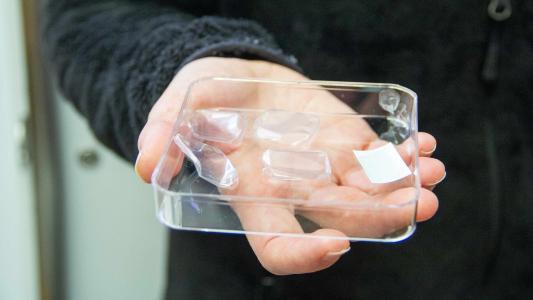Spain is deploying a fleet of robots to increase coronavirus testing.
The nation currently completes between 15,000 and 20,000 COVID-19 tests daily, but these robots will reportedly allow it to execute four times that — all while minimizing healthcare workers’ chance of exposure.
The Need to Increase Coronavirus Testing
Spain formally declared a state of emergency due to the coronavirus on March 14, ordering residents to stay at home unless they were seeking medical attention or food.
Since then, the situation in the European nation has only gotten more dire. The number of new cases is increasing daily, and Italy is now the only country with more coronavirus deaths.
That’s prompted the Spanish government to extend the nationwide lockdown until April 12 — but social distancing alone won’t be enough to end the crisis.
“We can use robots to perform the most dangerous tasks.”
Zheng Gangtie
“Everyone staying home is just a very blunt measure,” Emily Gurley, an associate scientist at the Johns Hopkins Bloomberg School of Public Health, recently told NPR. “That’s what you say when you’ve got really nothing else.”
“Being able to test folks is really the linchpin in getting beyond what we’re doing now,” she continued.
Gurley is far from the only expert emphasizing the need to increase coronavirus testing — the World Health Organization has urged nations to “test, test, test,” not just everyone who shows COVID-19 symptoms, but anyone who might have come in contact with the coronavirus.
With most medical facilities running on fumes right now, though, testing all of those people is easier said than done.
“We have to do the test, and then somebody has to process it and get it to the lab,” Rochelle Walensky, chief of infectious diseases at Massachusetts General Hospital, told CNN. “And then somebody has to call the patients back and tell them the results. I can’t see healthcare facilities having that kind of manpower.”
80,000 COVID-19 Tests
Automating at least some parts of the process could increase coronavirus testing capabilities at hospitals — and soon, Spain will have several testing robots at its disposal, according to Raquel Yotti, head of Madrid-based Health Institute Carlos III.
“A plan to automate tests through robots has been already designed, and Spain has committed to buying four robots that will allow us to execute 80,000 tests per day,” she said at a March 21 press conference, Bloomberg reports.
Yotti didn’t share any additional information on when the robots will be put into action or how they’ll manage to increase coronavirus testing in Spain so dramatically.
However, China recently unveiled its own coronavirus testing robot, and it enables health officials to take mouth swabs and check vital signs remotely, thereby minimizing direct contact between infected patients and medical staff during COVID-19 tests.
“Doctors are all very brave,” Zheng Gangtie, chief designer of that robot, told Reuters. “But this virus is just too contagious…We can use robots to perform the most dangerous tasks.”
In Spain, health workers currently account for 12% of all diagnosed coronavirus cases, so if its fleet of robots can decrease that number in addition to increasing coronavirus testing, they’ll prove doubly vital to the nation’s coronavirus response efforts.






